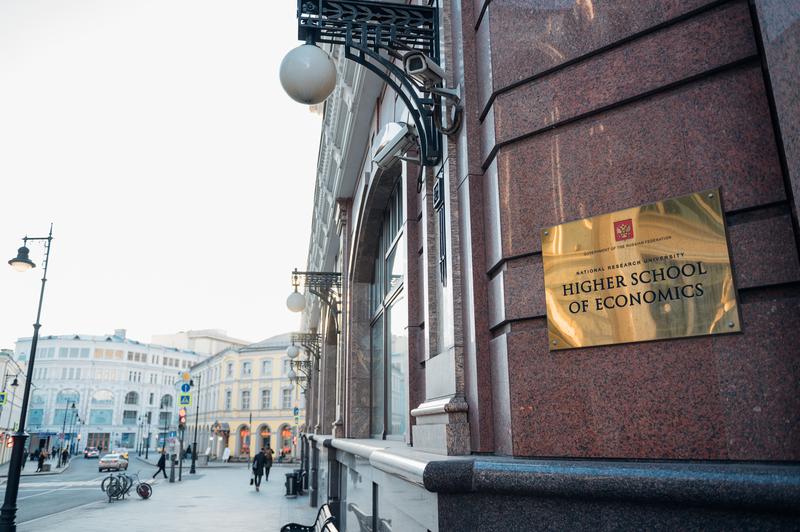
'When I Do My Work Well, It Benefits People with Mental Disabilities and Their Families'
After exploring several research fields, Maxim Gurin realised that he wanted to study sociology while specifically focusing on how his research could benefit the people at the centre of it. In this interview with the HSE Young Scientists project, he shares his passion for hip-hop dancing, the magical appeal of the courtyard at the House on the Embankment, and his quest to uncover the memories of the Chelyuskinitsy during a trip along the Trans-Siberian Railway.

Researchers Examine Student Care Culture in Small Russian Universities
Researchers from the HSE Institute of Education conducted a sociological study at four small, non-selective universities and revealed, based on 135 interviews, the dual nature of student care at such institutions: a combination of genuine support with continuous supervision, reminiscent of parental care. This study offers the first in-depth look at how formal and informal student care practices are intertwined in the post-Soviet educational context. The study has been published in the British Journal of Sociology of Education.

Happiness as an Industry: Why We Want to Be Happy—And What’s Wrong with That
The expansion of ‘happycracy’ into everyday life unfolds against the backdrop of a diktat of positive thinking, mindfulness, and self-improvement. Yet researchers point to the hidden traps in the pursuit of happiness. Why can being happy sometimes be dangerous? Maria Kucheryavaya, sociologist and visiting lecturer at the HSE School of Communication, reflects on this in her column for IQ Media.

‘A Sociologist Is a Curious, Searching and Courageous Person’
One of the oldest programmes at HSE University-St Petersburg is the English-taught Bachelor's programme 'Sociology and Social Informatics'. It has existed for more than ten years, and over this time, the programme has helped many students gain interdisciplinary skills and find their own unique career paths. In this article, Academic Supervisor Anna Nemirovskaya explains how the programme has adapted to modern realities, what sociology truly is, and how one can implement a sociological education.
.jpg)
HSE Researchers Study Emerging Adulthood in Russia
Sociology today distinguishes more developmental stages of growing up than just childhood, adolescence, and early adulthood, as commemorated in Leo Tolstoy’s trilogy Childhood, Boyhood, Youth. For the past two decades, sociologists have been exploring the concept of emerging adulthood, a transitional stage that occurs between adolescence and early adulthood. Researchers at the HSE Institute of Education have discovered that in Russia, one out of every two young respondents, with females more frequently than males, falls within the emerging adult category. The study findings have been published in Emerging Adulthood.
.jpg)
News Finds You: HSE Researchers Study Media Consumption of People Who Avoid News
News avoidance is a global phenomenon that affects millions of people around the world. Despite their conscious refusal to consume media content, many argue that the most important news still finds them. Researchers at the HSE Laboratory for Studies in Economic Sociology have studied how people perceive the ‘news-finds-me’ effect. The results of the study were published in the Bulletin of Moscow University.

Good Deeds Bring Moral Satisfaction to Russians
Researchers from HSE University have analysed why people feel happier when they help others. It turns out that joy is caused by different reasons, depending on who we help — relatives or strangers. In both cases, happiness brings moral satisfaction from doing a good deed, but helping loved ones is also associated with satisfying the need for belonging and acceptance, while helping strangers provides a sense of autonomy. The results of the research were published in the Journal of Social and Personal Relationships.

Alcohol Consumption Patterns Vary Across Social Groups in Russia, According to HSE Research
Although there is a larger percentage of drinkers among high-status professionals and executives compared to low-status workers, the former consume less alcohol. This is one of the findings of a study carried out by researchers of the HSE Faculty of Economic Sciences and published in Voprosy Statistiki.

‘Studying at HSE Was a Chance for Me to Get to Know Some Supportive Seniors, Knowledgeable Professors, and Wonderful Friends’
On August 4, 2023, a pre-defence of the thesis on ‘Refugee-Host Community Conflict over Assimilation, Integration, and State Legitimacy: The Case of Rohingyas in Bangladesh’ by Md. Reza Habib will be held at HSE University. The preliminary defence will take place at a joint meeting of the HSE School of Sociology and the International Laboratory for Social Integration Research. Md. Reza Habib shared his experience of studying and preparing his PhD with the HSE News Service.

Factors Affecting Alcohol Consumption Are Shaped in Childhood
Economists and sociologists who study alcohol consumption patterns often link them to people's living conditions and human capital such as education, work experience, and knowledge. Researchers of the HSE Laboratory for Labour Market Studies and the HSE Laboratory for Studies in Economic Sociology have found that non-cognitive skills developed in childhood and adolescence can have a major effect on the likelihood of alcohol abuse later in life and can diminish the role of education in this respect. The paper has been published in the Journal of Comparative Economics.

